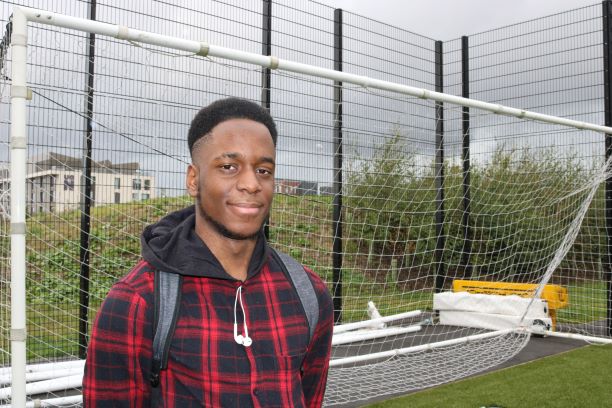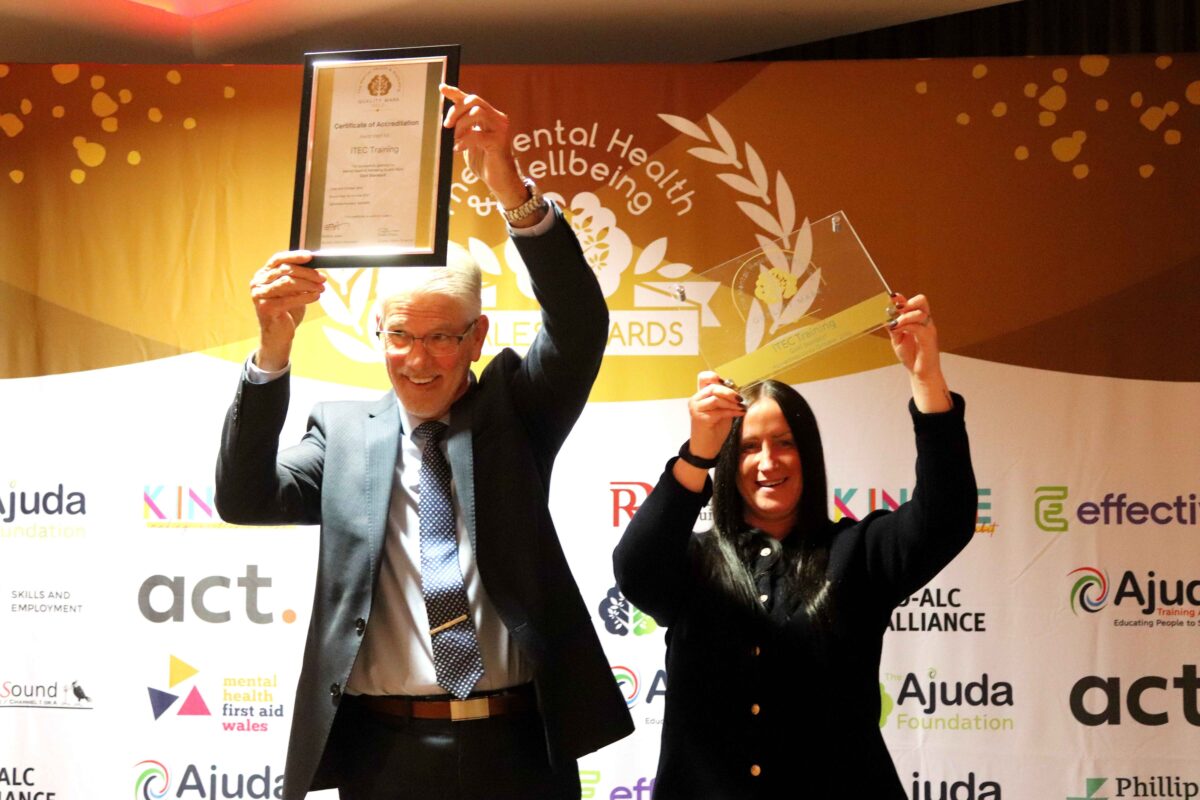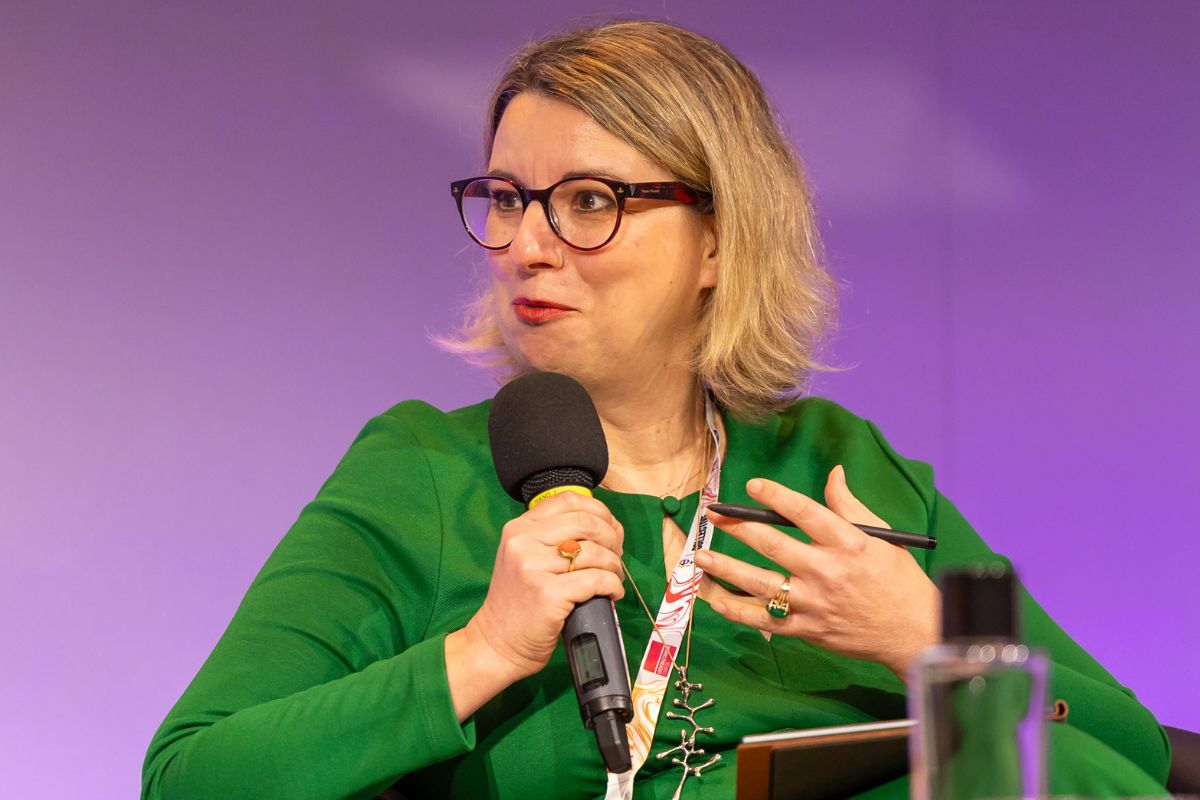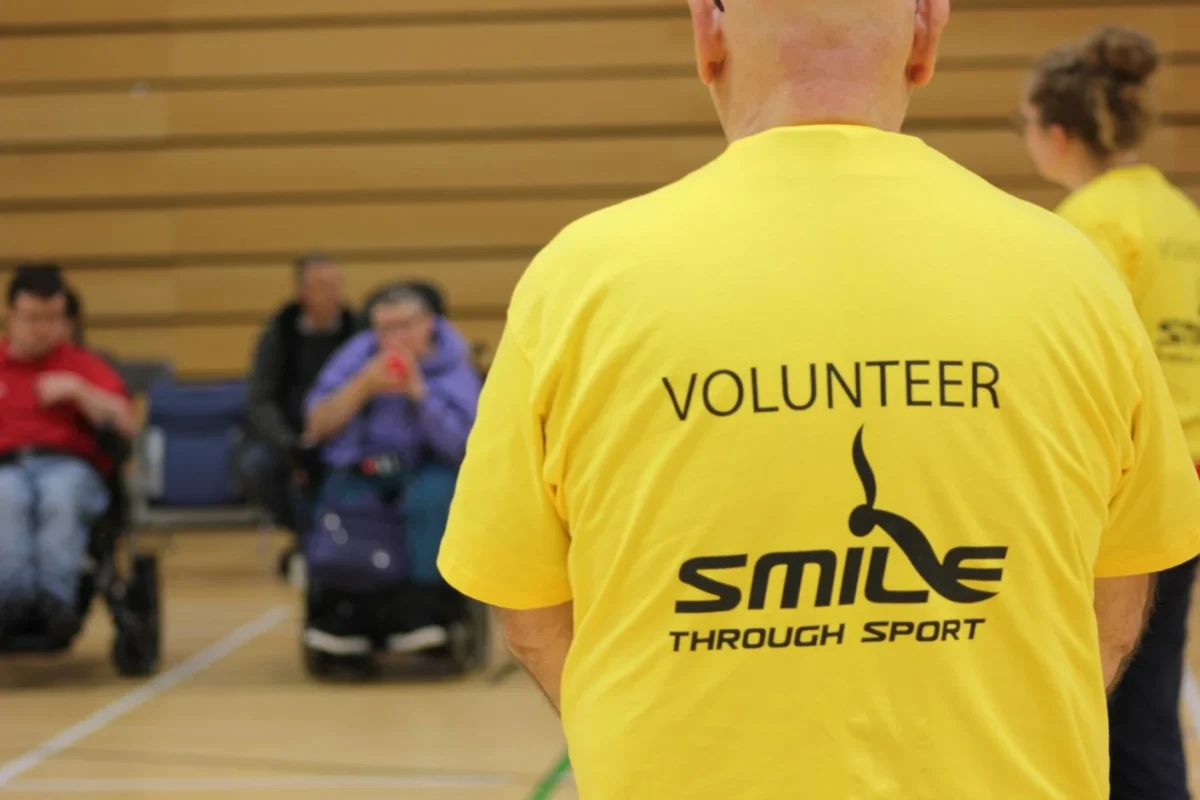University of Northampton student gets press pass to cover #Euro2020 finals

Marvin gets press pass to cover Euro 2020 finals after securing his place on mentorship programme
A budding sports reporter from the University of Northampton has landed the opportunity of a lifetime to cover the football Euro 2020 finals.
Multimedia Sports Journalism student, Marvin Onumonu, has a guaranteed media role at UEFA’s showpiece men’s tournament, which will be staged in 12 European cities, including London, next summer.
Arsenal fan Marvin could be reporting on England matches and interviewing the cream of international football during the competition, after securing a place on a sports journalism mentorship programme that’s sponsored by the Mayor of London.
Run by the Black Collective of Media in Sport (BCOMS), the Diversity of the Sports Media programme aims to increase the diversity in sports media by mentoring around 40 aspiring journalists, aged 18-25, from groups currently underrepresented in the industry: BAME, LGBT+, people with disabilities and those from disadvantaged backgrounds.
Marvin is taking part in 10 masterclasses in the lead up to Euro 2020, where he will refine practical sports journalism skills such as writing, commentary, photography, match reports and interviewing, as well as building up a network of industry contacts.
“This is an amazing opportunity for me to take my career to the next step,” said Marvin, who comes from Luton.
“We have a trip already organised to visit the BBC in London to shadow their sports team and are meeting some influential people in the industry, so the experience is invaluable.”
He added: “I think it’s still the case that there are not enough BAME journalists working in sport, and hopefully this programme will help to open up doors for myself and the others on the programme.”
Leon Mann, founder of BCOMS and a former BBC and ITV sports broadcaster, said:
“It is vital we challenge the glaring under representation of groups that bring greater diversity to the sports media. A diverse sports media, is a better sports media.”
The lack of diversity in the sports media industry has been brought into stark focus by research carried out by BCOMS in 2018. This found that of the 63 sports journalists sent by the mainstream national press to the World Cup in Russia, there was only one black sports writer and three women. There were no BAME women accredited for national UK press at the tournament.
Of the onscreen broadcast talent and visible writers covering Wimbledon, the World Cup, Winter Olympics and Paralympics, Commonwealth Games and European Games:
- Only five out of 338 roles were fulfilled by black sports journalists who didn’t have a professional sports background
- Only 32 out of 338 roles were fulfilled by BAME men and women.
Key findings from the 2016 Activity Alliance’s Media Report show that the way the media reports on disabled people in sport has a societal impact and has wider effects on people’s perceptions of disability. The report also recommended that journalists and sports providers need more support and guidance on how to cover disability sport appropriately.
Additionally, Scope’s Disability Perception Gap report found that 25 per cent of people think there is a lot of prejudice in Britain against disabled people in general and recommended that money should be ring-fenced in existing Government or Lottery-funded schemes to improve diversity in the creative industries, especially to get more disabled people on our screens.
Findings from a survey conducted as part of the Out for Sport (2012) report revealed that:
- 62% of LGBT respondents have witnessed or experienced homophobia or transphobia in sport.
- 79% of respondents think there is a problem with homophobia in sport.
- 66% of respondents think there is a problem with transphobia in sport.
This underrepresentation has led to a number of issues – including the misreporting on people from diverse groups; the absence of stories of importance and relevance to many underrepresented communities; and the promotion of harmful stereotypes.
BCOMS asserts these instances can lead to communities feeling excluded from the sports media; elite athletes becoming disengaged with the media and feeling uncomfortable in their working environment; vital messaging not making an impact at the grassroots level; and communities not engaging with sport.
Mr Mann added: “Ultimately, a sports media lacking diversity does not fulfil its potential and lacks the competence to deliver a high-quality service.”











Responses